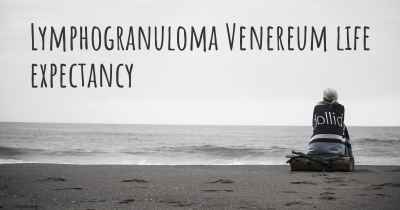Lymphogranuloma Venereum prognosis
What is the prognosis if you have Lymphogranuloma Venereum? Quality of life, limitations and expectatios of someone with Lymphogranuloma Venereum.

Lymphogranuloma venereum (LGV) is a sexually transmitted infection caused by certain strains of the bacterium Chlamydia trachomatis. It primarily affects the lymphatic system, causing inflammation and swelling of the lymph nodes in the genital area, rectum, or both.
Prognosis:
The prognosis for lymphogranuloma venereum varies depending on several factors, including the stage of the infection, promptness of diagnosis, and initiation of appropriate treatment. Early diagnosis and treatment can significantly improve the prognosis.
1. Primary Stage:
In the primary stage of LGV, a painless genital ulcer or sore may develop at the site of infection. If left untreated, the infection can progress to the next stage.
2. Secondary Stage:
In the secondary stage, the infection spreads to the lymph nodes, causing swelling and inflammation. This can lead to the formation of abscesses or buboes, which may require drainage. If not treated promptly, complications can arise.
3. Tertiary Stage:
In the tertiary stage, which occurs in untreated or inadequately treated cases, severe complications can develop. These may include chronic inflammation, scarring, strictures, and fistulas in the affected areas. In rare cases, LGV can also affect other organs, such as the liver or lungs.
4. Prognosis with Treatment:
With appropriate antibiotic treatment, the prognosis for LGV is generally good. Early diagnosis and treatment can help prevent the progression to more severe stages and reduce the risk of complications. However, if complications have already occurred, the prognosis may be less favorable.
5. Follow-up and Prevention:
After completing the prescribed antibiotic treatment, regular follow-up visits are essential to monitor the response to treatment and ensure complete resolution of the infection. It is crucial to practice safe sex and use barrier methods, such as condoms, to prevent the transmission of LGV and other sexually transmitted infections.








